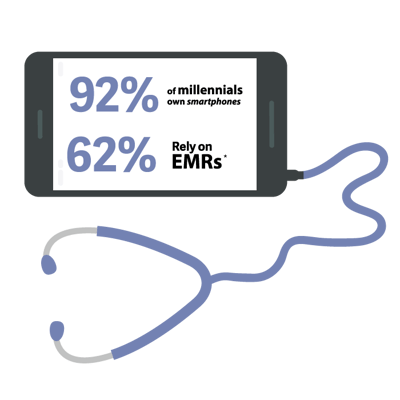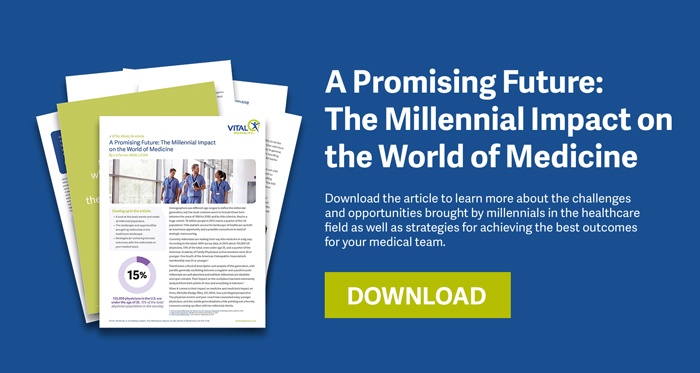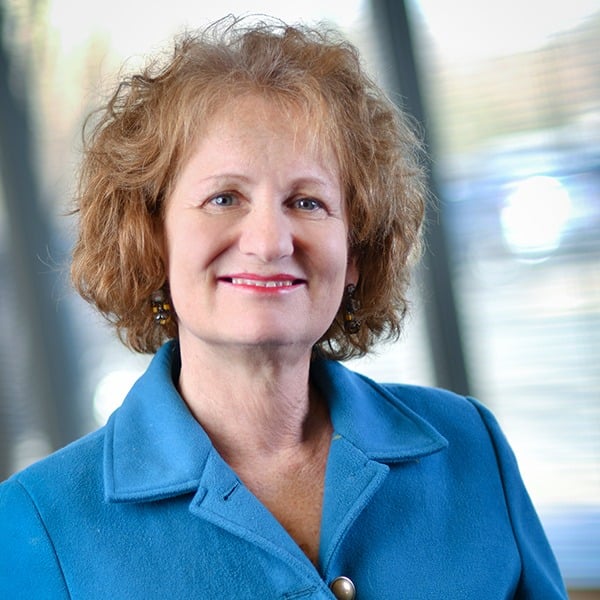While much of the attention being paid to millennial-age physicians centers on the young physicians’ sometimes uneasy relationships with older medical colleagues, there’s another interesting relationship to consider: millennials caring for millennials.
“With every new generation of doctors,” writes Angelo Landriscina, MD, “there is also a new generation of patients. While this is not a millennial-specific phenomenon, it is obvious millennial physicians will be the best equipped to understand patients of our own generation beyond their medical conditions, having more insight into how their individual diagnoses, symptomatology and treatment plans will affect their lives.”1
One important area of shared understanding between millennial doctors and their agemate patients is technology. “I have witnessed many more senior physicians lament new technological advances such as EMR,” Landriscina points out. “In contrast, our generation thrives when using technology to achieve our goals since it has always been part of our world.”
 Technology as a Connector
Technology as a Connector
In fact, as an article2 on Healthline.com points out, millennial physicians’ and patients’ comfort with technology allows them to accommodate each other in crucial ways. As more young doctors seek a work-life balance allowing them more flexibility and family time, working at home via telemedicine has become
an option.
“Doctors have never been able to work from home before in any capacity,” millennial physician James Wantuck, MD, tells Healthline. “So the ability to have a flexible schedule and see patients from their home office is something that really appeals to them.”
At the same time, younger healthcare consumers are comfortable communicating remotely via text and web and they don’t necessarily want or need face-to-face contact with the doctor every time. Maeghan Nicholson, a millennial who’s also the marketing director for a healthcare-oriented tech firm, tells Healthline: “I can research, plan, and book a 10-day trip to Hawaii from my couch without ever talking to a single person. So why do I have to spend at least two hours out of my day waiting on hold to schedule an appointment, driving to the doctor, sitting in a waiting room, and wasting my time to get a prescription for what I already know is a simple diagnosis for one of my
kids—like pinkeye—when this transaction could be easily done online by submitting a picture?”
As millennials become an even higher percentage of both consumers and providers of healthcare services in America, healthcare organizations need to find ways to better keep up with technology and empower millennial physicians to provide their millennial patients an improved care experience. This means working closely with their millennial physicians and asking for suggestions as to how they can meet the changing consumer demands and expectations. This is a change from past processes and represents a generational “changing of the guard” in healthcare, as in so many other areas of contemporary American life.
For more on millennial physicians and their impact on the healthcare industry, see our article “A Promising Future: The Millennial Impact on the World of Medicine.”
Interested in learning more about creating a conducive work environment for physicians of all backgrounds? Contact us today and see how we can leverage our experience to help you and
your organization.



